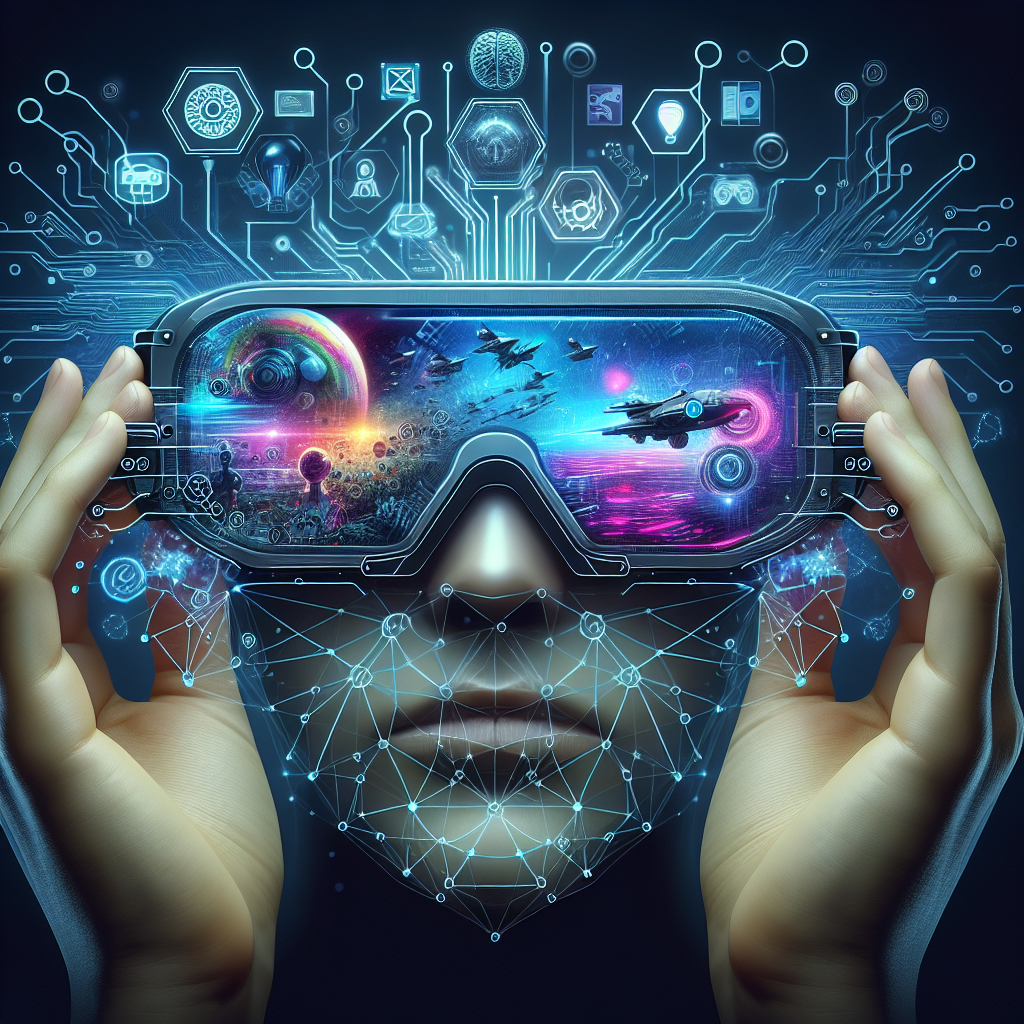The Role of AI in Augmented Reality: Enhancing Entertainment Experiences
Augmented Reality (AR) has rapidly gained popularity in recent years, transforming the way we interact with the world around us. By superimposing digital information and virtual objects onto the real world environment, AR technology has the potential to revolutionize various industries, including entertainment. With the integration of Artificial Intelligence (AI) into AR applications, the possibilities for enhancing entertainment experiences are endless.
AI is a branch of computer science that focuses on creating intelligent machines capable of performing tasks that typically require human intelligence, such as learning, reasoning, problem-solving, and perception. When combined with AR technology, AI can greatly enhance the realism and interactivity of virtual experiences, providing users with a more immersive and engaging entertainment experience.
One of the key ways in which AI enhances AR entertainment experiences is through the creation of personalized content. By analyzing user data and behavior, AI algorithms can generate customized virtual experiences tailored to individual preferences and interests. For example, AI-powered AR applications can recommend personalized content based on a user’s viewing history, location, and social media interactions, allowing for a more personalized and engaging entertainment experience.
AI can also improve the realism of AR applications by enhancing object recognition and tracking capabilities. By using machine learning algorithms, AR devices can accurately identify and track real-world objects in real-time, allowing for seamless integration of virtual content into the physical environment. This technology enables users to interact with virtual objects in a more natural and intuitive way, enhancing the overall entertainment experience.
Furthermore, AI can enhance the interactivity of AR applications by enabling natural language processing and voice recognition capabilities. By incorporating AI-powered voice assistants into AR devices, users can interact with virtual content using voice commands, making the experience more intuitive and user-friendly. This technology allows for more dynamic and interactive storytelling in AR games, movies, and other entertainment applications.
In addition to enhancing the user experience, AI can also help content creators and developers streamline the production process of AR entertainment applications. By leveraging AI-powered tools for content creation, developers can generate realistic and high-quality virtual content more efficiently, reducing production costs and time-to-market. AI algorithms can also assist in automating tasks such as scene generation, character animation, and special effects, allowing developers to focus on creating innovative and engaging entertainment experiences.
Overall, the integration of AI into AR technology has the potential to revolutionize the entertainment industry, offering new and exciting opportunities for content creators, developers, and users alike. From personalized content recommendations to enhanced object recognition and interactivity, AI-powered AR applications are reshaping the way we experience entertainment, providing a more immersive, engaging, and interactive entertainment experience.
FAQs
Q: How does AI enhance the realism of AR entertainment experiences?
A: AI enhances the realism of AR entertainment experiences by improving object recognition and tracking capabilities, enabling seamless integration of virtual content into the physical environment. By using machine learning algorithms, AR devices can accurately identify and track real-world objects in real-time, allowing for a more realistic and immersive entertainment experience.
Q: Can AI personalize AR entertainment experiences?
A: Yes, AI can personalize AR entertainment experiences by analyzing user data and behavior to generate customized virtual experiences tailored to individual preferences and interests. By recommending personalized content based on a user’s viewing history, location, and social media interactions, AI-powered AR applications provide users with a more personalized and engaging entertainment experience.
Q: How does AI improve the interactivity of AR applications?
A: AI improves the interactivity of AR applications by enabling natural language processing and voice recognition capabilities. By incorporating AI-powered voice assistants into AR devices, users can interact with virtual content using voice commands, making the experience more intuitive and user-friendly. This technology allows for more dynamic and interactive storytelling in AR games, movies, and other entertainment applications.
Q: How can AI help content creators and developers in the production of AR entertainment applications?
A: AI can help content creators and developers streamline the production process of AR entertainment applications by providing tools for content creation, such as scene generation, character animation, and special effects. By leveraging AI-powered tools, developers can generate realistic and high-quality virtual content more efficiently, reducing production costs and time-to-market.

